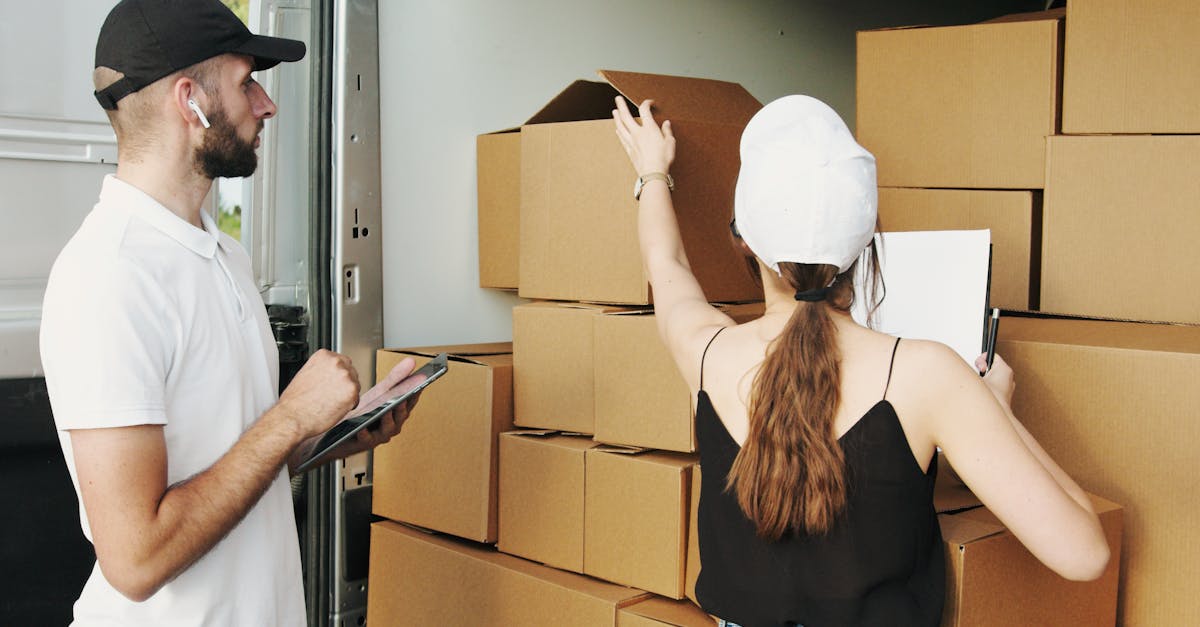
10 Must-Have Technologies for White Glove Logistics
Artificial Intelligence and Machine Learning
The integration of artificial intelligence and machine learning in logistics has transformed the way companies operate. These technologies streamline processes by analysing vast amounts of data, allowing organisations to optimise their supply chains. Immediate insights into operational patterns enable better forecasting, inventory management, and route planning, ultimately leading to significant cost reductions and improved service delivery.
Beyond operational enhancements, these technologies also play a crucial role in decision-making. By leveraging predictive analytics, businesses can anticipate market trends and customer needs, facilitating proactive rather than reactive strategies. This agility not only boosts efficiency but also helps in maintaining high standards of service that customers expect from white glove logistics.
Improving Operational Efficiency and DecisionMaking
Implementing artificial intelligence and machine learning allows logistics companies to harness vast amounts of data for optimisation. Automation of routine tasks reduces human error and enhances accuracy. Algorithms can analyse patterns in shipping, inventory management, and delivery routes. This data-driven approach enables proactive decision-making, ensuring resources are allocated efficiently and costs are minimised.
Moreover, predictive analytics help in forecasting demand and managing inventory levels effectively. By anticipating customer needs, companies can reduce delays and streamline operations. Machine learning also aids in improving supply chain visibility, providing real-time updates that enable quick responses to any issues. These technologies foster a competitive edge by facilitating smarter choices and driving overall efficiency within the logistics framework.
Mobile Communication Devices
In the fast-paced world of logistics, the ability to communicate quickly and effectively can significantly impact service delivery. Mobile communication devices play a crucial role in enabling real-time interaction among team members both in the field and at distribution centres. The convenience of smartphones and tablets ensures that updates regarding shipments, inventory levels, and customer queries can be shared instantly. This immediacy helps to coordinate operations more effectively while reducing the likelihood of errors and delays.
Moreover, the integration of mobile apps tailored for logistics operations enhances functionality even further. Features such as GPS tracking, instant messaging, and access to essential documentation streamline workflows and improve transparency for all stakeholders involved. As teams can connect and collaborate seamlessly, the overall efficiency of logistics processes is elevated. The resulting agility not only optimises daily operations but also contributes to a robust customer service experience.
Facilitating Immediate Communication Among Teams
In the fast-paced world of white glove logistics, seamless communication among team members is essential for operational success. Utilising mobile communication devices allows for instant exchanges of information, ensuring that everyone is on the same page at all times. This immediacy helps to address issues promptly and keeps workflows efficient, particularly in situations where timely responses can prevent delays or complications.
Furthermore, these devices facilitate collaboration across various platforms, enabling teams to connect regardless of their location. Whether it involves coordinating pickups or relaying specific customer requests, quick communication aids in maintaining high service standards. Ensuring that all personnel have access to reliable mobile technologies reinforces the organisation's commitment to excellence in customer service.
Customer Relationship Management (CRM) Software
The integration of CRM software into white glove logistics significantly enhances customer interaction and satisfaction. This technology enables companies to collect and analyse customer data, providing insights that inform personalised service offerings. As a result, logistics providers can tailor their approaches to meet specific customer needs, leading to stronger relationships and improved loyalty.
In addition to fostering engagement, CRM systems streamline communication between logistics teams and clients. They ensure that all parties are informed about order statuses and potential issues, reducing misunderstandings. The efficiency gained through this continuous flow of information allows teams to respond proactively, thereby enhancing the overall service experience for customers.
Enhancing Customer Engagement and Satisfaction
Effective customer engagement relies heavily on the use of advanced technologies that facilitate personalised interactions. CRM software allows logistics companies to gather and analyse customer data, leading to tailored experiences that build loyalty. With features like automated messaging and personalised communication, businesses can respond quickly to client needs. This responsiveness cultivates a sense of reliability, encouraging repeat business and fostering long-term relationships.
Satisfaction is further enhanced through CRM's ability to track interactions and service history. By providing a complete view of each customer's journey, logistics companies can proactively address concerns and anticipate future needs. Implementing feedback loops within the CRM system enables organisations to adjust services based on customer input, leading to continuous improvement and a more satisfying experience overall.
FAQS
What are white glove logistics?
White glove logistics refers to a premium service that goes beyond standard shipping and delivery, offering careful handling, installation, and tailored service for high-value or delicate items.
How does artificial intelligence improve logistics?
Artificial intelligence enhances logistics by analysing large data sets to optimise routes, predict demand, and streamline operations, leading to improved efficiency and decision-making.
Why are mobile communication devices important in logistics?
Mobile communication devices enable immediate communication among team members, facilitating real-time updates, coordination, and problem-solving, which is crucial for maintaining service quality in white glove logistics.
What role does CRM software play in logistics?
CRM software helps logistics companies manage customer relationships, enhance engagement, and improve satisfaction by providing insights into customer preferences and facilitating personalised service.
Can these technologies be integrated with existing systems?
Yes, most of these technologies are designed to be compatible with existing systems, allowing for seamless integration and enhancement of current operational processes in logistics.
Related Links
What to Consider When Choosing Cloud-Based Logistics SolutionsWhat to Know About Automated Warehouse Management Systems
Roundup of Best Practices in Data Analytics for Logistics
Review of the Top Automated Warehouse Management Systems
Why Data Analytics Drives Efficiency in White Glove Logistics
Historical Evolution of Technology in White Glove Logistics